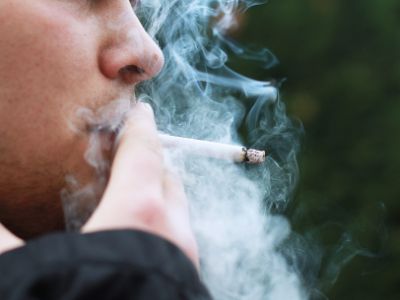Do Smokers’ Lungs Heal After Quitting?

Your lungs are responsible for delivering oxygen to your entire body. Oxygen is essential for all your organs and cells. Without clean or enough oxygen, you face a higher risk of illness and disease, including cancer. Oxygen is needed for optimal brain function, good mood, and energy. It can also improve your strength, boost your immune system, and reduce stress and anxiety. Quitting smoking is one of the most imaginative things you can do to improve your overall health. The time it takes for the lungs to heal is different for everyone.
Do Smokers’ Lungs Heal After Quitting?
Within two weeks to 3 months after quitting, you may start to notice improved lung function as your lungs start the self-cleaning process.
In the first year after quitting, symptoms like coughing and shortness of breath decrease. During this time, your lungs clean themselves better to reduce infection risk. As your lungs continue to self-clean and heal over time, you’ll continue to reap the health benefits of smoking cessation.
How Many Cigarettes Does It Take Damage The Lungs?

Researchers say that people who smoke five cigarettes a day are doing almost as much damage to their lungs as people who smoke 30 cigarettes daily. They say it takes “light” smokers about one year to develop as much lung damage as “heavy” smoking does in 9 months.
They note that a lighted cigarette releases 7,000 chemicals, 69 of which are considered cancer-causing substances.
Cigarette smoking is the leading cause of preventable disease and death in the United States. About 480,000 people die every year due to smoking. Experts estimate 34 million adults smoke, and more than 16 million live with a smoking-related disease. Whether a person smokes five cigarettes a day or two packs a day, the negative impact on the body is significant. When cigarettes burn, more than 7,000 chemicals are released. At least 69 of those chemicals are known to cause cancer.
These chemicals cause injury to the cells inside the lungs. When the injured cells become inflamed and swollen, the body attempts to repair the damage. During that process, normal, healthy lung tissue can be broken down as the body tries to fix the damage caused by smoking.
The average smoker takes ten puffs of a cigarette over 5 minutes. A person who smokes 25 cigarettes daily will receive a hit of nicotine 250 times. Nicotine is just one of the toxic chemicals found in cigarettes.
How Fast Do Your Lungs Heal After Quitting?
20 minutes after quitting:
- Your heart rate drops to an average level.
12 to 24 hours after quitting:
- The carbon monoxide level in your blood drops to normal.
- The risk of heart attack is significantly reduced.
Two weeks to 3 months after quitting:
- Your risk of having a heart attack begins to drop.
- Your lung function begins to improve.
1 to 9 months after quitting:
- Your coughing and shortness of breath decrease.
One year after quitting:
- Your added risk of coronary heart disease is half that of a smoker.
5 to 15 years after quitting:
- Your stroke risk is reduced to that of a nonsmoker.
- Your chance of getting mouth, throat, or oesophagus cancer is half that of a smoker.
Ten years after quitting:
- Your risk of lung cancer is about half that of a smoker.
- Your chance of getting bladder cancer is half that of a smoker.
- Your chance of getting cervical cancer or cancer of the larynx, kidney or pancreas decreases.
15 years after quitting:
- Your risk of coronary heart disease is the same as that of a nonsmoker.
Medication used to help people stop smoking:
- Bupropion – the drug is in a class of medications called antidepressants. It works by increasing certain types of activity in the brain. Bupropion is a tablet and a sustained-release or extended-release (long-acting) tablet to take by mouth.



